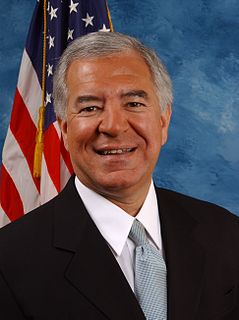A Quote by Heather Mac Donald
Significantly reorienting our immigration system towards skilled workers and away from unskilled aliens should be a non-negotiable quid pro quo for amnesty.
Related Quotes
We should strengthen our immigration laws to prevent the importation of foreign wages and working conditions. We should make it illegal for employers to lay off Americans and then fill their jobs by bringing in workers from overseas. Any U.S. employer who wishes to hire from abroad - even for temporary jobs - should have to recruit U.S. workers first. And we should end the unskilled immigration that competes with young Americans just entering the job market.
I've always said that the 1986 [Immigration Reform and Control] Act had a fourth leg [in addition to law enforcement, increased immigration and amnesty] to its stool which was wishful thinking. And that pattern of a four-legged stool was copied in the failed attempts to enact a second and bigger general amnesty for illegal aliens in 2006, 2007, and in the current year 2013.
If you are unskilled and uneducated, your job is going south. Skilled workers, educated people are going to do fine ’cause those are the kinds of jobs Nafta is going to create. If we are going to start rewarding no skills and stupid people, I’m serious, let the unskilled jobs that take absolutely no knowledge whatsoever to do - let stupid and unskilled Mexicans do that work.
To the extent that our workers compete with low-paid Mexicans, it is as much through undocumented immigration as trade. This pattern threatens low-paid, low-skill U.S. workers. The combination of domestic reforms and NAFTA-related growth in Mexico will keep more Mexicans at home. It is likely that a reduction in immigration will increase the real wages of low-skilled urban and rural workers in the United States.



































